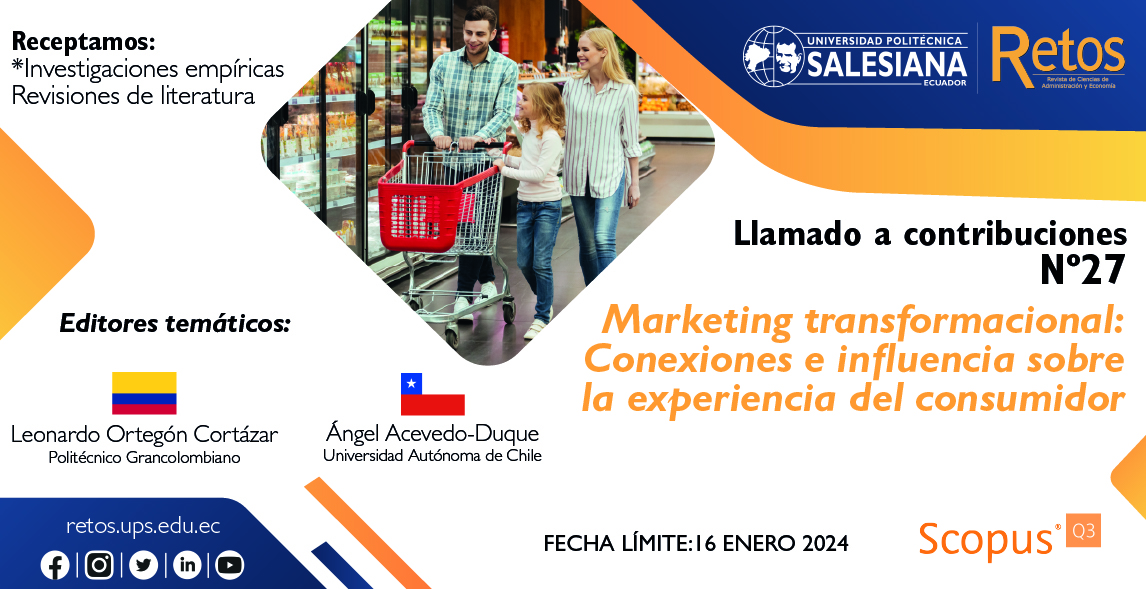Call for Contributions. Retos No. 30 (October 2025)
2025-01-20
In relation to the research line on Public Administration, Retos journal extends the following call for contributions:
Public Administration: Challenges in the face of the political context and the 4th Industrial Revolution
Horacio Cao
Universidad de Buenos Aires
https://orcid.org/0000-0001-7605-4812
Rodolfo Canto Saénz
Universidad Autónoma de Yucatán
https://orcid.org/0000-0001-6812-4155
Thiago Ferreira Dias
Universidade Federal do Rio Grande do Norte
https://orcid.org/0000-0002-0749-5654
As if it were a conceptual body that emulates the god Janus, it is often said that the study of Public Administration works on two dimensions: the political and the organizational. In both cases, the current context presents significant challenges.
In the first case, the complex mechanism by which decisions in the political sphere are transformed into concrete state actions is challenged by contradictory requirements: growing budgetary constraints parallel to pressures to expand social, environmental and productive policies. In the second case, although the State presents elements markedly differentiated from other organizations, like them it faces urgent changes from the overwhelming deployment of the 4th Industrial Revolution.
In this scenario, governments must decide what to do with the state organization, setting strategies for the design and implementation of public policies, personnel management, planning, evaluation and control, as well as intra- and intergovernmental coordination.
This special issue invites academics, state professionals, political leaders and trade unionists to reflect on the challenges faced by Public Administrations, in a politically unstable context and where the 4th Industrial Revolution calls for the transformation of fundamental notions of their organizational order. The objective is to foster critical debate to develop strategies that help build a Public Administration capable of overcoming current challenges and contributing to inclusive, environmentally sustainable and democratic development.
Topics to be discussed in this issue include (but are not limited to) the following SDG-aligned research:
- 4th Industrial Revolution, social change and new models of state management.
- Citizen participation, democracy and public administration.
- Accountability and Open Government: policies and actions aimed at preventing state capture.
- Information and Communication Technologies (ICT) in Public Administration: from electronic government to digital government.
- Public-private partnerships and co-management with companies and civil society organizations.
- The new profile of public employment: entry, career and training for "digital collar" employment.
- State capacities, coordination between jurisdictions and intergovernmental relations.
- Transformations of the state structure: what new forms exist to replace the bureaucratic/Napoleonic model?
We welcome presentations that boost our collective thinking and help us face the double challenge facing state management.
In this sense, the Journal of Economic Sciences and Administration "Retos" values and appreciates empirical contributions based on representative samples, predictive and robust statistical models, and a diversity of perspectives. These contributions should offer relevant insights into the central theme of the special issue, enriching scholarly debate and the state of the art.
Deadline: July 1, 2025
Published Date: October 1, 2025


